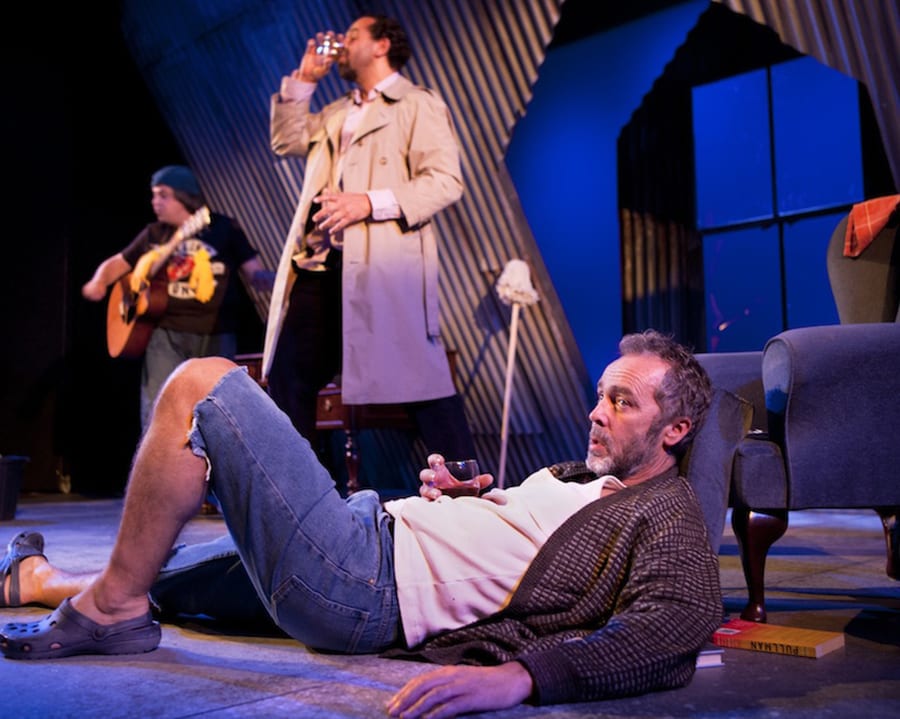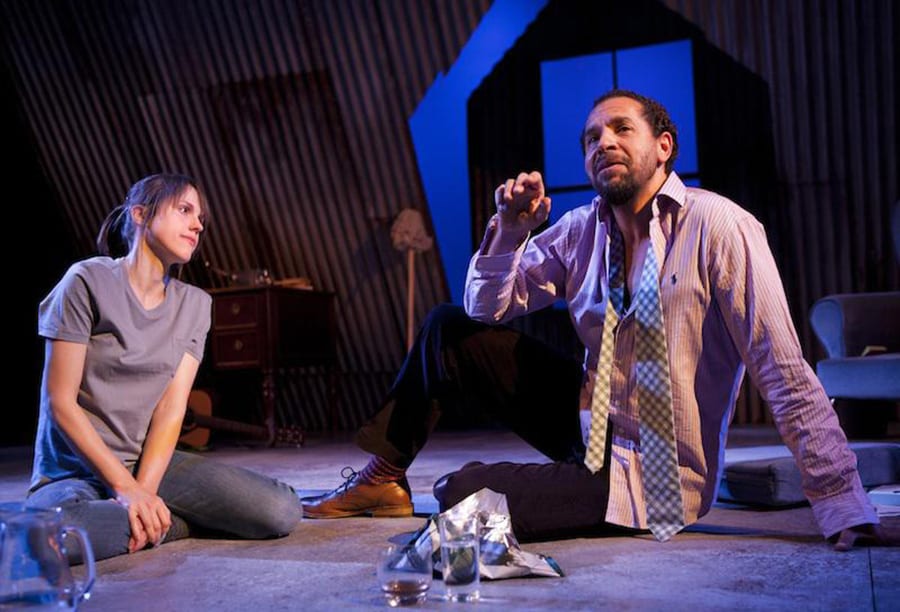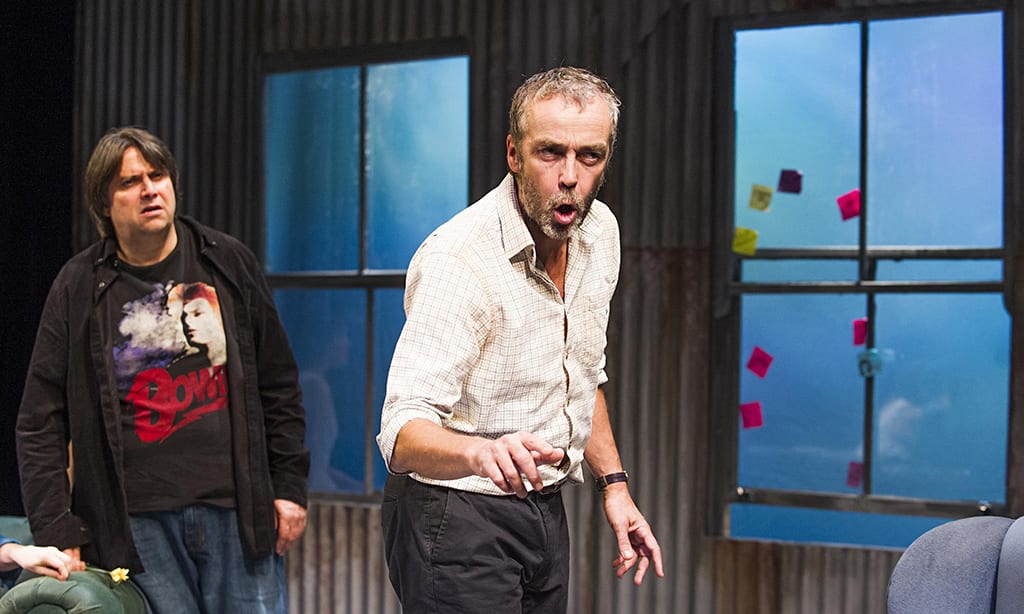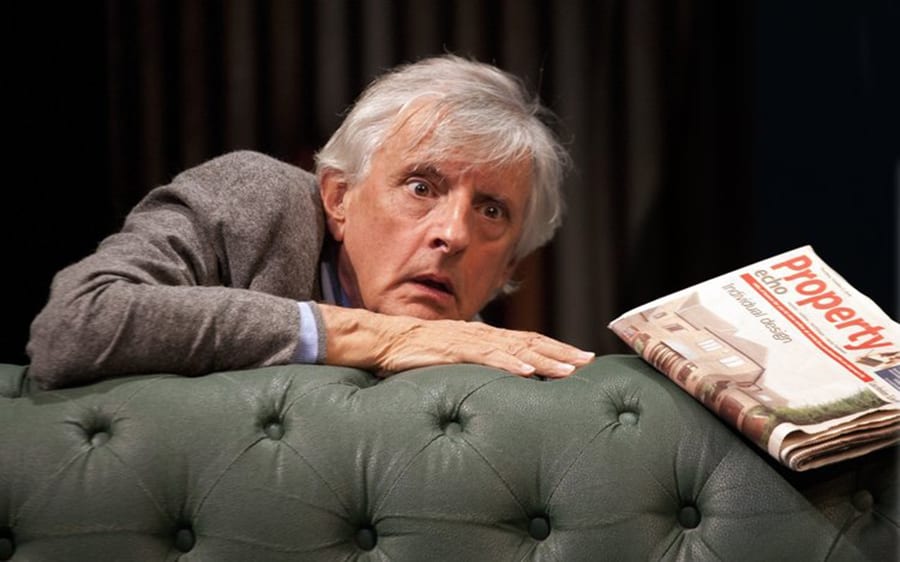In her latest adaption of Chekhov, Anya Reiss has relocated Uncle Vanya to a rusted, corrugated iron farmhouse in 21st century Yorkshire. While Reiss and her actors capture the earthy humour and familial disorder of Uncle Vanya, many of the play’s modern injections feel heavy-handed and distracting. More importantly, despite some great performances the production lacks any distinct atmosphere and falls short of its potential.
Uncle Vanya portrays the mundane but pained lives of a group of family and friends who work on or visit the farm of the academic Serebryakov (Jack Shepherd). The titular Vanya (John Hannah) manages the farm for the retired professor who lives off its earnings. Serebryakov’s family and Vanya’s friends make up the others who work at or visit the farm, including the professors daughter, Sonya (Amanda Hale) who, although young, is also trapped like Vanya, without love or purpose.
Upon the arrival of the professor and his beautiful new wife Yelena, the characters underlying dissatisfaction with their own lives, whether trapped and alone on the farm or with an older husband, quickly emerges. This ‘wasted life’ takes the form of the enclosing iron walls, the inescapable lethargy and alcoholism of the characters and their repeated attempts to pull away the young Yelena from her new husband, in the hopes that with her they might be rescued from their boredom and failure. Serebryakov’s intention to sell the farm only causes Vanya to see this dull life also as about to be taken from him, and the situation quickly escalates. His repeated failure to shoot the professor, his self-admitted greatest enemy who he blames for imprisoning him on the farm, provide some of the play’s most farcical but tragic moments.
This production has been adapted by Anya Reiss to bring it into the modern era. Whilst the set has been impressively designed and the language is largely powerful and well suited, some glaring effects of this do become frustrating. Words like “iPad” and “Internet” seem to crop up in conversation without any purpose, feeling shoe-horned in to remind us that this is not Imperial Russia. Telygin (Alan Francis), a friend of Vanya’s, plays his guitar in almost any scene he participates in. While this provides a fitting background to the heat exhaustion and disconnected musings of the first act, it reappears at bizarre moments. Sonya’s ending monologue in which she resigns herself to the release of death is backed by an annoying accompaniment, transforming this moment, one of the play’s most purely tragic scenes, into a song. Scene changes are performed to the play’s ‘theme tune’, a bland fingerpicked piece complete with slapstick movement of scenery and falling off chairs. These moments take you completely out of the play and feel like something from an entirely different work.
The play itself, however, offers the greatest barrier to these changes. In Imperial Russia, an urban academic may well have lived off the proceeds of a neglected farm, worked by family members which included his forgotten daughter. But by moving this setting to now, the play actually becomes less relatable and interesting. In the 21st century, with Bitcoin and Buy-to-Let, the notion of a Yorkshire farm as an investment seems absurd. Wouldn’t Serebryakov have sold up twenty years ago and bought a big house in Stoke Newington or Notting Hill? This drags the play down with it, its unique modern dimension feels contrived, pointless and instantly regrettable.
The cast, however, are mostly on good form and so it is a shame their performances are shadowed by the play’s glaring changes. John Hannah is fantastic as Vanya, his argument with Serebryakov is particularly arresting despite his failures. Reiss has preserved the humour well and it rarely interferes with the despair.
Altogether, however, the play never achieves the correct atmosphere to be truly great. Familial chaos and disruption abounds, but most characters pain or musings ultimately are too hollow to achieve any real overarching gloom. We are repeatedly told people are in pain, but never really feel it. This is the biggest problem with the performance, it sets out to change so much but never pays enough attention to the underlying feelings which make the play function.




